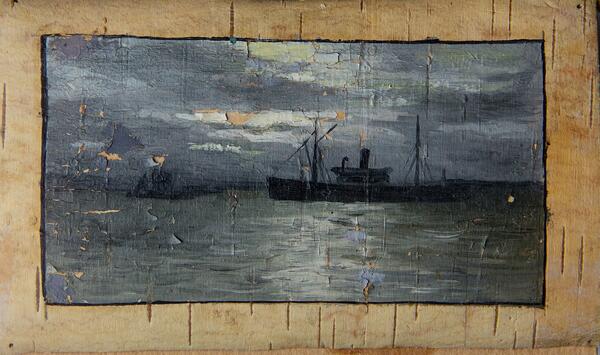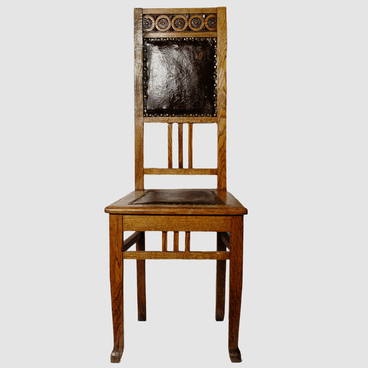Guriy Pletnyov’s drawing
It was a large, dilapidated house on Rybnoryadskaya Street. It looked as if it had been taken by storm by the starved students, prostitutes and wraithlike men who lived there.
The young men huddled in the corridor, in a small room under the stairs to the attic. They had only one bed: while Pletnyov worked nights as a proofreader in a print shop, Gorky had a chance to sleep, and then they switched during the day. Early in the morning, Gorky would run to a pub to get boiling water, and then the friends would drink tea and eat bread, read newspapers together, and discuss the latest news, poems, and funny stories.
In 1928, when marking the memorable places of his youth on the map of Kazan, Gorky singled out one more address — the house of Alexander Pletnyov, Guriy’s father. It was there that the friends printed out illegal leaflets for the revolutionary group they both belonged to. Later the group was shut down, many of its members either fled or were arrested, and Gorky had a case opened against him — “The case of the Department of Police of the bourgeois Alexey Peshkov”.
Guriy Pletnyov was arrested for his revolutionary activities and sent to Kresty Prison in Saint Petersburg at the age of 21. While serving his sentence, Pletnyov, as if dreaming of freedom, created this watercolor drawing of ships on the Neva River on a piece of dry birch bark. Although the work was created over 130 years ago, the artist’s relatives managed to preserve it quite well. On the eve of the Great Patriotic War, they donated it to the Gorky Museum in Kazan.
In his novel “My Universities” and the short story “An Easygoing Man”, Gorky described Guriy Pletnyov the following way,His hair was blue-black like a Japanese, his dark face thickly spotted as if gunpowder had been rubbed into it. Ever cheerful, sharp-witted, and adept in games, he had a store of embryonic talents. But he made no effort to strengthen and develop them, satisfied, like all talented Russians, to live by his natural wit.
“Bright with the tints of youth, his soul glowed into their lives. It set off a continuous fireworks of jokes, songs, raillery on the habits of people, dashing ironies on the brutal deceptions of life.”
After his imprisonment, Guriy Pletnyov returned to Kazan, got married and became a father. He succumbed to tuberculosis at the age of 55.


